Lessons On Leadership And Hiring From The Fast Company Innovation Festival
Share Some Of The Advice You Wish You’d Gotten When You Started As A Leader:
Remember why everyone on your team chose to be there
No one in any industry joined it to create just kind-of-okay stuff. It happens sometimes, but that’s never the objective for anyone. Reminding yourself that the people who you’re creating with are there because they think they can do something amazing gives you mental license to lean on them to help push the work to be better, more crafted, and more polished. —Brad Soulas, associate creative director, Saatchi & Saatchi New York
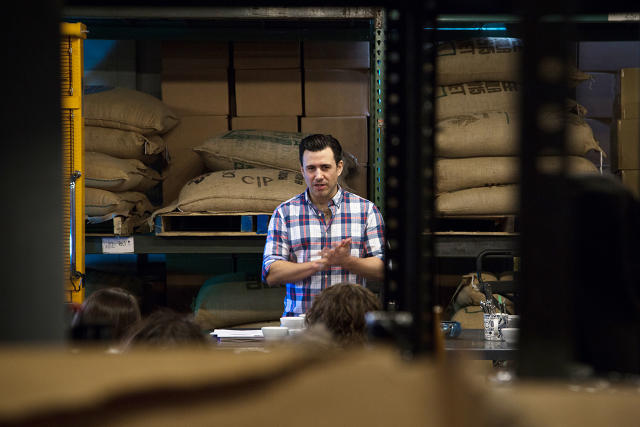
A successful pivot takes an open mind
I wish I had been talked to about pivoting and learning to not fight the changes in my business, especially early on. I had a set mind-set of what [the business] was going to look like, and things very quickly started to change and move in different directions, and I stood a bit with my feet in cement early on. For example, losing our lease for our first space. For me, [that] was like, ‘This is going to be a wrap!’ It took longer than it needed to for us to really find peace with [losing the lease] and start being aggressive in looking for another space to doing things differently. —Paul Schlader, cofounder, Birch Coffee
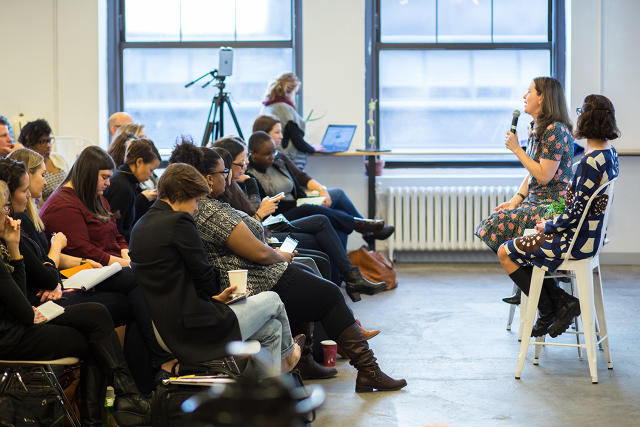
It’s all in the delivery
It’s rarely [about] what you do but how you do it. My father gave me this advice going into an interview after business school where I was afraid I would get a nosebleed. I did. I also got the job. —Amy Whitaker, LMHQ
Listen carefully
It doesn’t matter what other people say, but what you choose to listen to. People will always have an opinion about what you are doing (or not doing), and it’s your job to decide if they are valid criticisms that may aid your growth, or unnecessary criticisms meant to break you. —Sage Adams, cofounder, Art Hoe Collective
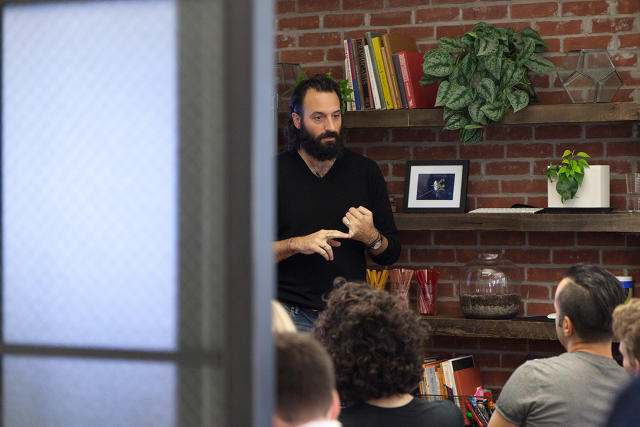
Everyone leaves eventually . . .
. . . and that’s kind of a hard thing to grapple with, because you build these really close relationships and it’s your thing, it’s your business, and when people come inside, they become family in many ways. That said, the folder of people who have worked at Sub Rosa is much thicker than the folder of people who work at Sub Rosa, because we’ve been around for so long, and eventually people move on.
One of the things that I’ve learned to do is to try to help them do so with grace—and leave them better than they were when they came in the door. I’d like to try to make everyone who leaves an alumni, and not someone who didn’t get the attention or the improvement they were hoping to get. So that’s really an important aspect that I learned on the battlefield, not necessarily given to me in advance. —Michael Ventura, founder and CEO, Sub Rosa
Find a support system
[Being a leader] can feel lonely. You need to find a peer system outside the company if one does not exist within. At the end of the day, unless you’re lucky enough to have a co-president, there is one leader. If you are a figurehead of a company and you’re running it, the kind of camaraderie that happens with peers doesn’t exist for you. [With Games for Change,] this is my first time being a sole leader of a team or organization. It feels isolated that there isn’t a person to do that high-five with when you have that personal win. So having that support system outside the office [lets you] be more human in your role. —Susanna Pollack, president, Games for Change
You will want to quit
Every day there will be a reason to quit—be stronger than that reason. —Jennifer Gefsky, cofounder, Apres
What’s The Hardest Thing About Being A Leader?
Finding the time to create
[The] struggle of spending three minutes a day being creative, and the rest [of the time] on stuff that isn’t. —Todd Simmons, vice president, brand experience & design, IBM
Grappling with uncertainties
It will always seem like you are jumping off a cliff. There is no stability in leadership because whatever you are leading is always going to be changing. –-Sage Adams, cofounder, Art Hoe Collective
What Are Some Of The Rewards Of Being A Leader?
Watching the next generation rise
Watching young people move on in their career. We have Sam [Arpino], our head of fun [and talent and culture manager]—she was a teacher, then she was on the campaigns team, and now she’s found her passion in HR. We have a woman who was the office manager here, and now she’s doing our payroll because she wants to have a career in finance. Being able to take young, smart, passionate people and put them on their career path so that when they leave DoSomething, they’re doing something amazing, is the best part of being a leader. —Aria Finger, CEO, DoSomething.org
Creating the conditions for success
There’s nothing greater than being able to create the conditions under which other people succeed. That’s what good management is: Setting the right context, and the right goals, under which people can structure and execute the work in the way that’s best for them. If you’re leading a company or a team, you get to build the kind of place and culture in which you would want to work. That is super rewarding. I subscribe to the notion that culture is something that needs to be intentionally shaped. Because your company is going to have a culture, and so you may as well make it a good one. —Matt Lieber, cofounder and president, Gimlet Media
Witnessing the success of others
I’m a people person, [so] it’s all about empowering younger people to do their best and grow. That’s probably one of the biggest rewards I have—to witness other people’s success. It’s not just about my ideas (although that’s certainly great). For me, it’s just as rewarding to watch others grow and taking pride in their work. The ‘it takes a village’ approach makes the day joyful. —Susanna Pollack, president, Games for Change
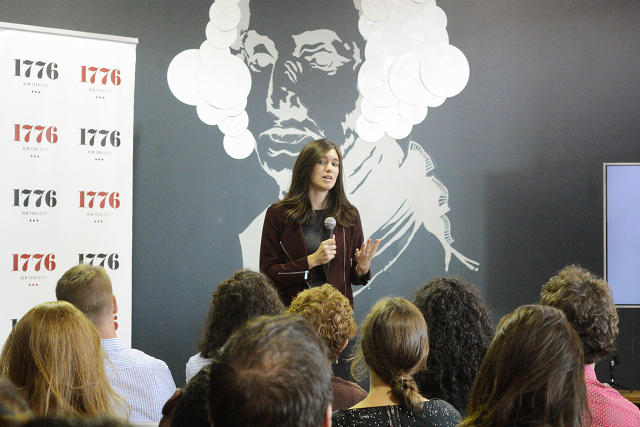
What Do You Look For In Building Your Team?
Low ego, resourceful, communicators
There are a lot of things that I look for, but I would say first: someone who is willing to roll up their sleeves and who can operate in a range of scenarios effectively, whether it is making the morning coffee or meeting with a head of state. You need people who are low-ego and resourceful, [who have] sort of a ‘no job too small, no job too big’ perspective.
Communication skills are incredibly important, even if [the position you’re hiring for] is not a soft-skills role—whether it’s a developer, designer, or the other end of the spectrum. If you cannot communicate effectively, it is incredibly hard to work together as a team. So communication is critical, and I find it often goes hand in hand with having a constructive, positive, can-do attitude.
The third thing I always look for is people who have been in positions of responsibility, or where they’ve been promoted within former roles—and honestly, it doesn’t have to have anything to do with the job that they’re going for. It could be that you were a manager at a fast food company; it could be that you were training other employees at a vegetable market. If you, in your background, have shown the capacity to lead others, it gives you so much. —Rachel Haot, managing director, 1776
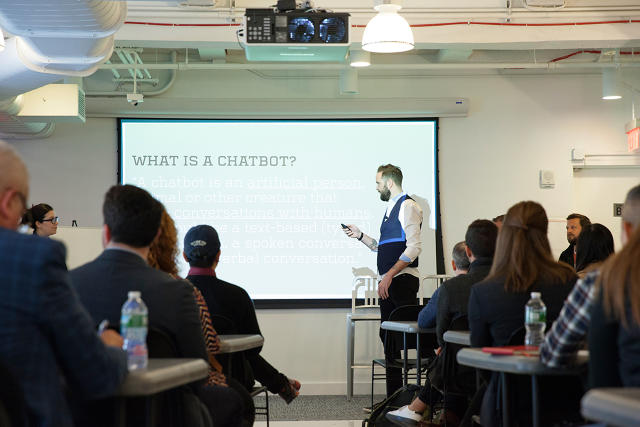
Enthusiasm and curiosity
Every member of any team, no matter how senior, needs to be eager to learn and continue to learn. Especially in the technology space, we’re constantly exploring new platforms, languages, and areas—enthusiasm and energy are key to excelling in that environment. If this job isn’t fun, then something is wrong.
You could be the brightest, most experienced candidate in the world, but to really succeed, you need to constantly ask questions and look for answers. We should be consumers of culture and go out into the world to visit museums or see a show. Ideas and inspiration come at the most unexpected times, and from the most unexpected places. —Trevor O’Brien, CTO, Deutsch

People who are smarter than we are
We are firm believers in hiring people who are smarter than we are in all different aspects of the business. We learn from people on our team every day. That’s really important to drive things forward. —Merrill Stubbs, cofounder, Food52
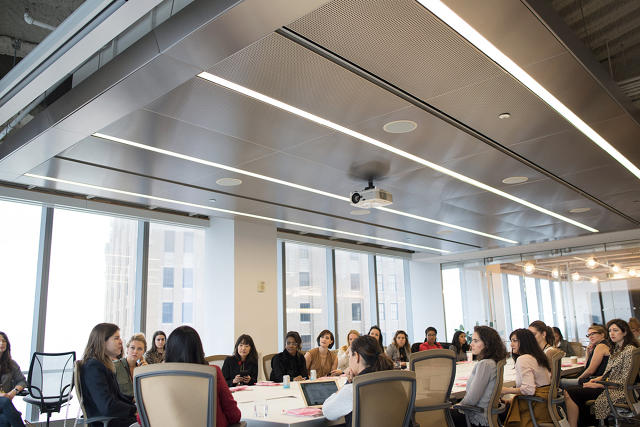
People with something to prove
We have a really great blend of brains at [Glossier], who are all united by the shared desire to build the company into something amazing. Everyone’s motivations are a little bit different, and that’s fine. I love someone with something to prove. I don’t even need to know—if you have something to prove to your old boss, or your dad, or your third grade teacher, or yourself. It doesn’t matter. You need that hustle and that fire, and I don’t care where it comes from. –Emily Weiss, CEO and founder, Glossier
A healthy mix of humility and grit
[Beyond] a portfolio that demonstrates solid design skills and craft, we’re looking for a healthy mix of systems thinking, humility, and grit. Lone genius designers are so 20th century. If you lack the patience or humility to listen to others and cocreate, you probably wouldn’t like it here. [And] part of design’s role in business and engineering situations is to be the relentless optimist. We look for people who are likely to say: “Those last 15 ideas didn’t work? Well what if we tried this other thing . . . ” —Joni Saylor, program director, IBM Design Practices
An internal locus of control
There are two types of people: people who have an internal locus of control, and people who have an external locus of control. Internal means you take responsibility, and you believe that you can shape the outcome of a project and the things that go on around you—that you have an effect, you take responsibility and ownership. External means you believe you are shaped and buffeted by outside forces. One way to find out is to ask someone about a time when they were working on something with a team and they failed. Do they talk about external forces, or do they talk about themselves and what they could have done differently?
Empathy is also a foundational idea at Gimlet in terms of why we do what we do and why we make the kinds of shows that we make, but also foundational in how we work together as a team. Does someone have the ability to put themselves in the shoes of another person they’re working with? —Matt Lieber, cofounder and president, Gimlet Media
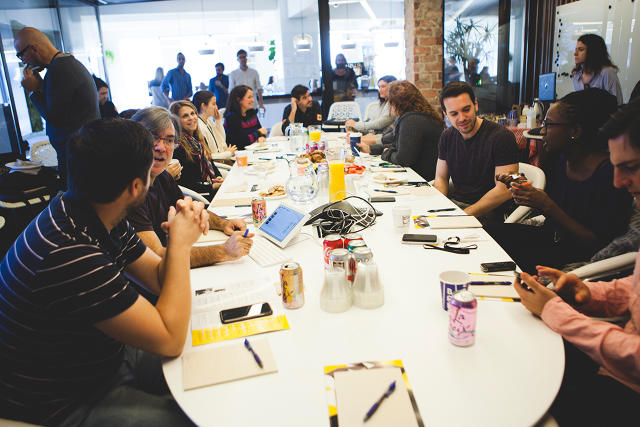
Good collaborators
Of course you can build a culture from the inside, but it’s really what you bring in that perhaps sometimes has the biggest impact. We put our candidates through a lot. They meet a whole range of people from different disciplines and levels, so we get a good understanding of the cultural values of the person, and if they align with ours. I often also work through a live problem with candidates in a room. It’s a great way to hear from them outside of their prepared answers, and it also gives us a hint of their work style. —Tim Jones, director of strategy, 72andSunny NY
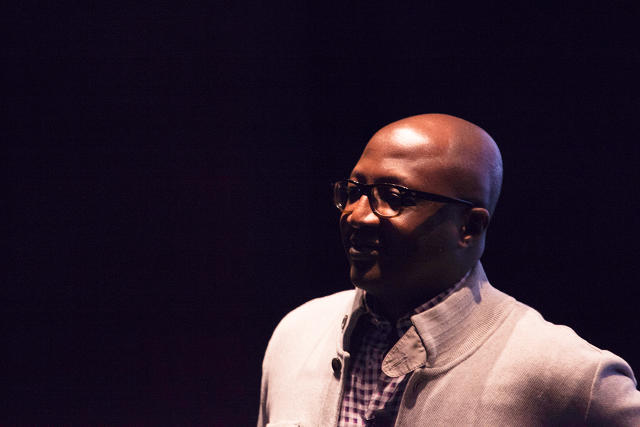
What Are Three Questions You Like To Ask Potential Hires?
Kay Madati, EVP and chief digital officer, BET Networks:
- We work at the intersection of technology, entertainment, and innovative consumer experiences—what excites you most about this work?
- What’s the most interesting or innovative thing going on in our industry? Why?
- How you have approached leading, influencing, collaborating, and partnership on a work accomplishment (or failure), and what have you learned from the challenge?
Amy Whitaker, author, Art Thinking:
- What is the most you’ve ever worried, early on, that a project you were working on would fail? Why, and what happened?
- If money were no object and you could do anything, but it had to make a contribution of some kind, what would you do?
- One of the best questions to ask in an interview is a follow-up question. You can often learn more about a person by getting to the bottom of one thing than skating across the surface of many.
Molly Logan, cofounder, School of Doodle:
We mainly hire girls in their teens and early twenties, so resumes are a bit pointless. But that means there’s no hiding behind a list of degrees or embellished job descriptions. I am hiring based on their potential rather than their reality. Therefore, I ask the following:
- Who inspires you? (This tells me what sort of person they hope to become.)
- What is one thing you absolutely suck at doing? Like, something you are epically bad at. (This tells me how comfortable they are with failing, if they have a sense of humor about it, and where they perceive weakness.)
- What do you think about hairless cats? (This tells me how easily they are thrown off. Most are trying to figure out the “correct” answer. The best response I’ve gotten? “Why, is there one around here?”)
Jennifer Gefsky, cofounder, Apres:
- Tell me about your greatest strength and your greatest weakness as an employee.
- Why are you passionate about [what we’re doing]—changing the workforce for women?
- Why do you believe gender diversity is a problem, and how do you think we can create change?
Scott Davis, chief growth officer, Prospect:
- How would you describe your life’s purpose? (Thinking about the answer helps the recruits make the corollary to what we ask our clients, but the answers are also so revealing and help us get underneath the hood.)
- Where do you seek inspiration? (I like to hear three or four top-of-mind answers that hit on different sources of inspiration.)
- I often ask recruits what they believe their path to partner looks like. This is a little more appropriate with those at an MBA level, but when I interview people, I am looking at them in a long-term way: as a potential executive, shareholder, partner . . . maybe even running the firm. I want to hire leaders. So I fast-forward them and ask them to think about what it might feel like to be a leader at our company.
Share Some Of The Advice You Wish You’d Gotten When You Started As A Leader:
Fast Company , Read Full Story
(46)














